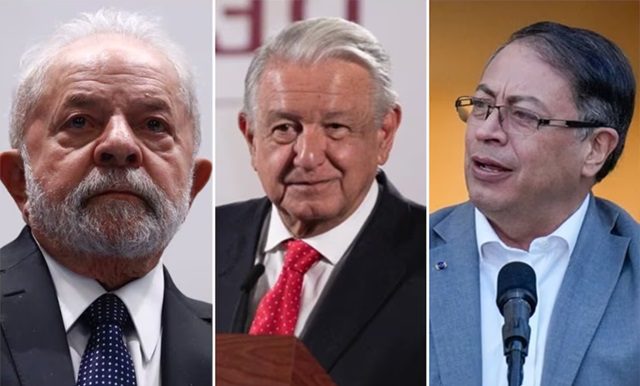BTN News: Recently, Argentine President Javier Milei accused the presidents of Mexico, Andrés Manuel López Obrador; Colombia, Gustavo Petro; and Brazil, Luiz Inácio Lula da Silva, of being “accomplices” to the Venezuelan dictatorship. This accusation came after the Organization of American States (OAS) rejected a resolution. The resolution aimed to demand transparency from Venezuela regarding their recent elections. These elections were controversial and claimed to give victory to Nicolás Maduro. The resolution failed because it did not get enough votes. Mexico did not join the meeting, and Colombia and Brazil abstained from voting.
Milei expressed his anger on X (formerly known as Twitter), targeting these leaders for their roles in the OAS decision. He believes that their actions helped the Venezuelan government avoid scrutiny. In his post, Milei said, “Once again, and it’s becoming a pattern… some fools called me crazy for seeing communism everywhere… Others, from a politically correct standpoint, argued that communism no longer exists and that I am an exaggerator…” He added, “Ultimately, today not only proves that I am right about the international agenda I point out, but it also makes clear that those who questioned me are accomplices, either out of ignorance or stupidity.”
Milei further emphasized his point by sharing a repost that stated, “The resolution on Venezuela at the OAS is rejected because of these three accomplices of the dictatorship,” alongside pictures of Lula, Petro, and López Obrador. This bold statement highlights Milei’s ongoing belief that communism and socialist ideologies are still strong in Latin American politics.
The rejection of the resolution by the OAS has significant effects on the political landscape in the region. The lack of agreement shows the differences among Latin American countries regarding their stance on the Venezuelan government. Some nations push for stricter oversight and accountability, while others prefer a more hands-off approach. This leads to a deadlock in international diplomatic efforts.
Milei’s strong words are part of his broader strategy to position himself as a firm opponent of leftist ideologies and regimes in Latin America. His statements resonate with his supporters who share his dislike for socialist governments and their policies. By labeling influential leaders like López Obrador, Petro, and Lula as enablers of a dictatorship, Milei is not only criticizing their political choices but also rallying his base around a common cause.
The controversy also shines a light on the OAS’s role in dealing with political crises in the region. The organization’s inability to pass the resolution reveals the complexities and challenges it faces in fostering regional unity and effective governance. As countries like Argentina push for more decisive action against regimes like Maduro’s, the differing perspectives among member states continue to pose significant obstacles.
In the bigger picture, Milei’s accusations and the resulting fallout highlight the ongoing ideological battles within Latin American politics. The tension between right-wing and left-wing governments often shows up in international forums like the OAS. This affects their ability to reach agreements on important issues. This ideological divide shapes the region’s diplomatic relations and impacts the collective approach to addressing human rights and democratic governance.
Milei’s outspoken nature and his willingness to call out fellow leaders on social media reflect a growing trend of political leaders using digital platforms to share their messages. By using X to air his grievances, Milei ensures that his views reach a wide audience, sparking public debate and media coverage. This approach aligns with his populist style, which emphasizes direct communication with the people and a confrontational stance against perceived enemies.
As the situation in Venezuela remains a contentious issue, the responses from regional leaders and international bodies will continue to evolve. Milei’s criticism of López Obrador, Petro, and Lula marks another chapter in the ongoing debate on how best to address the challenges posed by the Maduro regime. The outcome of these debates will have lasting impacts on the political dynamics and alliances within Latin America.
Ultimately, the clash over the OAS resolution and Milei’s subsequent accusations underline the deep-rooted divisions and the complexity of achieving a unified approach to governance and human rights in the region. The interplay between national interests, ideological beliefs, and international diplomacy will continue to shape the narrative and outcomes in Latin American politics.


